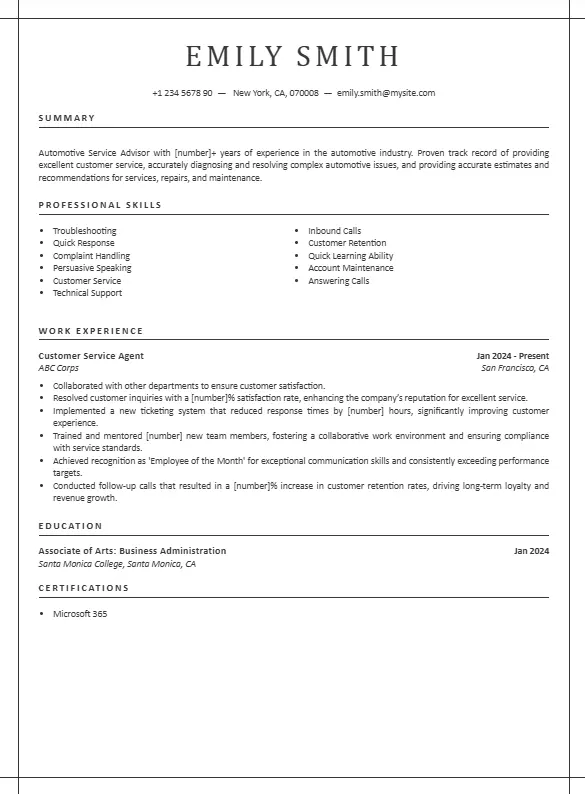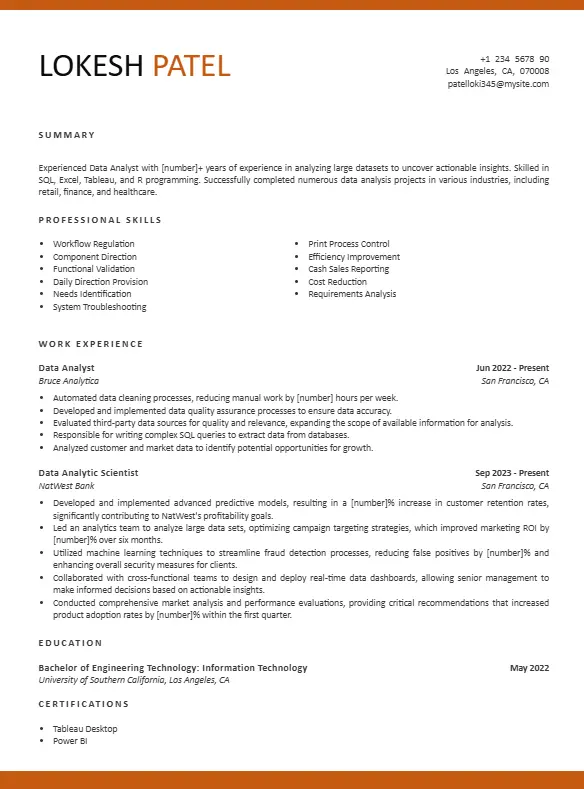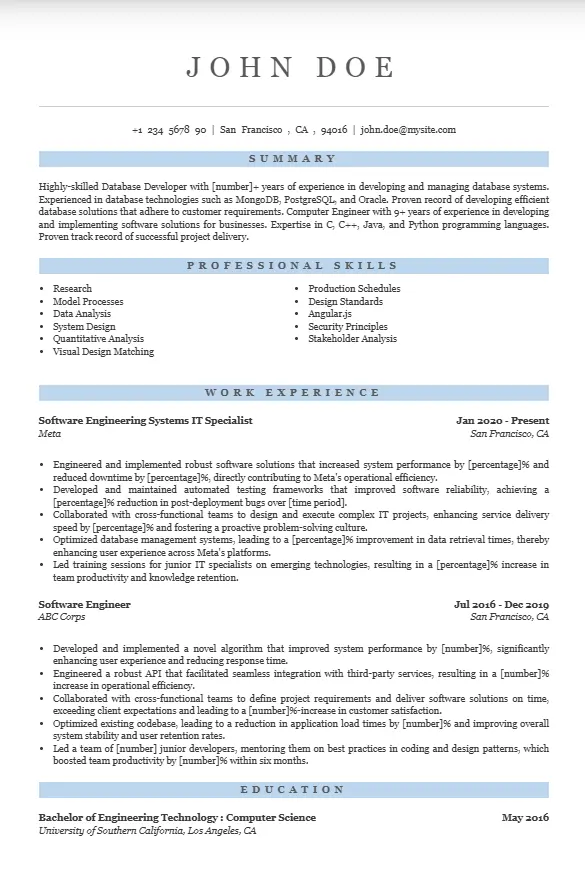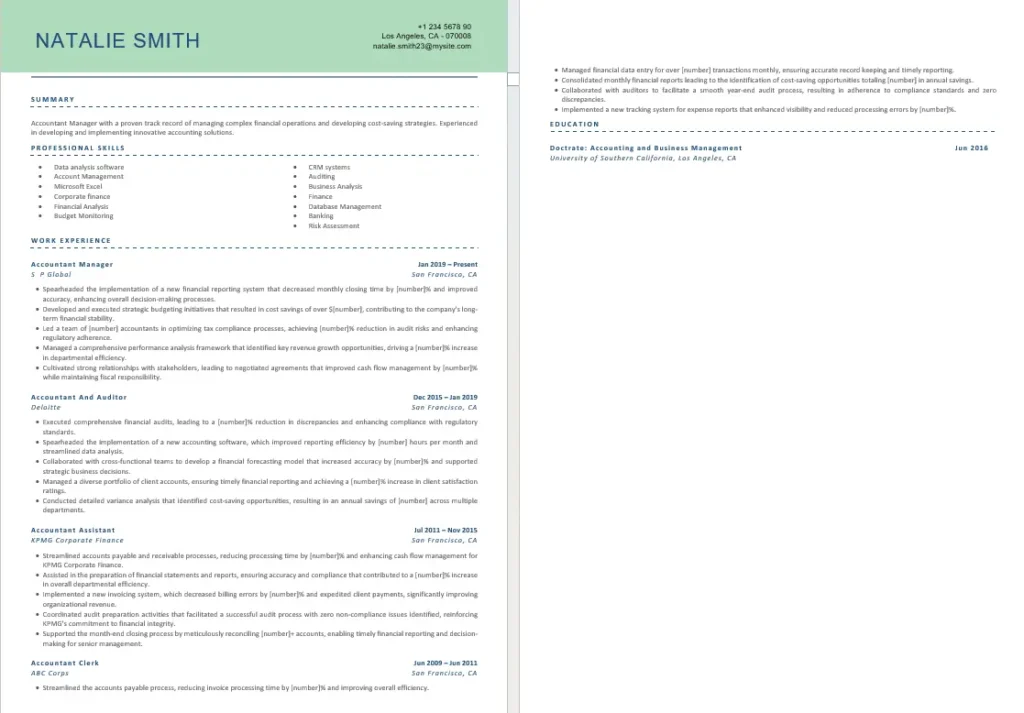Let’s face it: your resume is more than just a piece of paper. It is your professional story that you want to curate in the best way possible to make yourself appealing to potential recruiters. However, a common question associated with writing resumes is: how far back should a resume go while listing your work experience?
There is no one specific answer to this important question. Therefore, it is important to break down everything you need to know about writing the perfect resume in detail.
In this comprehensive article, we will thoroughly discuss how far back a resume should go in terms of your experience, qualifications, industry, and much more. So, keep reading!
General Rule
As a general rule of thumb, most experts agree that you need to highlight the last 10 to 15 years of your professional work experience.
This is a widely accepted period because it represents your most relevant experiences and recent certifications or achievements.
Moreover, if you really think about it, a summer job you had in high school is unlikely to impress a hiring manager looking for a senior marketing director. Therefore, if you are preparing resumes for a senior position, you should keep in mind that while your early career roles might have been stepping stones, they’re not necessarily your strongest selling points later in your career.
Exceptions
It is vital to emphasize that not every career follows a straight line. Some professions have unique considerations:
- Academic and scientific roles often value a more comprehensive history
- Senior executive positions might require a complete history of your professional journey
- Some industries give a lot of importance to long-term experience and institutional knowledge
Now that you are familiar with the general rule let’s get into specific examples and the impact of career stages on how far back your resume should go.
New Graduates (0-2 Years of Experience)
Are you fresh out of college and stepping into the job market? Your resume strategy needs a different approach when you’re just starting; every single experience matters.
What to include:
- Internships that provided real-world skills
- Relevant academic projects
- Campus leadership roles
- Part-time jobs that demonstrate work ethic
- Volunteer experiences that showcase transferable skills
Read More :- Resume Summary Examples For Young Adults
At such an early stage in your career, your goal is simple: prove you’re eager, adaptable, and ready to learn. Moreover, your resume should scream potential with a strong objective statement, even if your professional experience is limited.
Example For Entry Level Resume :-

Early Career Professionals (2-5 Years of Experience)
These are the formative years of your career. Even though you have moved beyond the entry-level position by this point, you are still building your professional identity. Hence, these years are very critical to convert your potential into proven capability.
During this career period, you need to focus on the following aspects of your career:
- Demonstrating skill progression
- Highlighting quantifiable achievements
- Showing increased responsibilities
- Proving you’re more than just an entry-level employee
At this stage, each of your relevant work experience should tell a story of growth. Employers want to see you’re not just working but also developing your skills for more senior positions.
In short, you can include all of your relevant skills and work experiences at this stage, even a high school summer internship, as long as it demonstrates that you have grown professionally over the years.
Example For Early-Career Professional Resume :-

Mid-career professionals (5-15 Years of Experience)
Once you have gathered 5 years of work experience, you are in the professional sweet spot. Most career trajectories become interesting at this phase. This is the point where you’re no longer the new employee proving your worth but also not experienced enough to have the senior leadership position.
Hence, your resume needs to be a strategic and well-crafted document that narrates a compelling story of your professional growth.
Example For Mid-Career Professional Resume :-

Crafting a Professional Story
With over 5 years of experience, your resume is much more than a simple job history. It must have a carefully crafted professional story that speaks directly to potential employers, showcasing your professional journey with strategic intent.
Just because you have so much experience does not mean you have to include every other experience and skill. Instead, you need to be smart enough to highlight the most important and compelling aspects of your career.
By this time in your career, you need to shift from simply listing job responsibilities to telling potential employers about how you had a positive impact in your previous jobs. It is important because employers aren’t just looking for someone who can perform a job, but they want to see a professional who can drive meaningful change and continuously adapt.
Senior Professionals (15+ Years of Experience)
The question of how far a resume should go becomes most relevant when you reach this stage of acquiring 15+ years of experience. At this point, crafting your resume strategically is vital to ensure maximum success in your career and potential job-finding process.
By this point, you are not documenting your career or work history. Instead, you are narrating your legacy of professional excellence. With decades of experience, every line on your resume becomes a strategic decision.
Example For Senior Professional Resume :-

Edit and Refine your Resume Ruthlessly
Remember, your resume cannot be a comprehensive chronicle of every professional experience. It must be a laser-focused showcase of your most impactful contributions. Another way to put it is that your resume should not be a documentary but a quick highlight reel.
When you have 15+ years of experience, leadership is a vital part of your resume presentation. For such positions, hiring managers are looking for visionary leaders who have the capability to transform an organization for the better.
Hence, your resume needs to include relevant work experiences and skills that demonstrate your leadership skills.
Highlight Your Key Contributions
The most compelling senior-level resumes focus on transformative achievements. This means going beyond job descriptions to illustrate how you’ve:
- Driven significant organizational change
- Developed innovative strategic solutions
- Created sustainable business improvements
- Mentored future industry leaders
In short, you’re not just showing what you’ve done in your career but demonstrating your ability to see the bigger picture, handle complex challenges, and drive meaningful progress in the organization you are leading.
How long should your resume be?
Deciding the length of an ideal resume is not a universal formula but a decision that is dependent on your professional journey. The primary goal of a resume is to create a document that efficiently communicates your professional value, achievements, and potential to employers.
Students or new graduates who are just starting their careers should go for a single-page resume. Focus on educational achievements, internships, relevant projects, and skills that demonstrate your potential. As your career progresses, your resume naturally expands to accommodate your growing professional narrative.
Most hiring managers agree that professionals with 5-20 years of experience benefit from a two-page resume. This length allows you to provide context for your achievements, showcase career progression, and demonstrate the depth of your experience while remaining engaging and scannable.
Resume Length for Senior Professionals
With 15+ years of experience, the traditional one-page resume rule becomes more flexible. Two pages are not just acceptable – they’re often necessary to capture the depth of your professional journey. However, this doesn’t mean including every single detail from your entire career.
The golden rule remains: focus on the most recent 10 to 15 years of experience. This approach serves multiple strategic purposes:
- Allows hiring managers to quickly scan your most relevant achievements
- Keep the focus on your most significant contributions
- Subtly mitigates potential age-related bias in hiring processes
Industry-Specific Considerations
Every industry has its own standards and best practices. Your resume must adhere to these standards to impress the recruiters and get invited for an interview. Understanding the unique expectations and requirements of different sectors is also vital to improving the overall effectiveness of your resume.
Technology Sector
In tech, relevance is much more important than the age of a project. A cutting-edge project from five years ago might be more impressive than a decade-old role maintaining legacy systems.
Healthcare and Academia
These fields often value comprehensive history. Publications, research, and long-term contributions matter deeply.
Creative Industries
Your portfolio might matter more than a linear work history. Showcase projects that demonstrate your evolution and skill.
Hospitality
The hospitality industry values dynamic professionals who can blend operational excellence with exceptional customer experience. Your resume should showcase adaptability, cultural sensitivity, and strategic management skills.
Agricultural
This industry blends scientific expertise with practical innovation. Your resume should reflect technical knowledge, research contributions, and real-world impact on food production and sustainability.
Conclusion
The bottom line is that writing a resume isn’t about listing every single thing you’ve ever done in your professional career. It’s about telling your professional story in a way that makes someone want to hire you.
Think of your resume as a highlight reel. You want to show off your best moments, not bore someone with every single detail of your work history.
The goal is to make employers sit up and take notice – to make them think, “This individual can be great for the company.”
For older positions you do include, focus on major accomplishments and describe them with compelling action words for resume rather than a bland list of duties.
Throughout your career, your resume will change, and that is the reason why the answer to the question of how far back a resume should go keeps evolving throughout the career. In other words, what works when you’re just starting out won’t work when you’re an experienced professional. And that’s okay because your resume is supposed to grow and evolve just like you do.
Quick Tips to Remember
- Be relevant
- Focus on your biggest achievements
- Show what you can do, not just what you’ve done
- Keep it clear and simple
Lastly, don’t stress too much while crafting the resume. Every great career starts with that first resume. Make it count, but don’t overthink it.
More Resources :-

